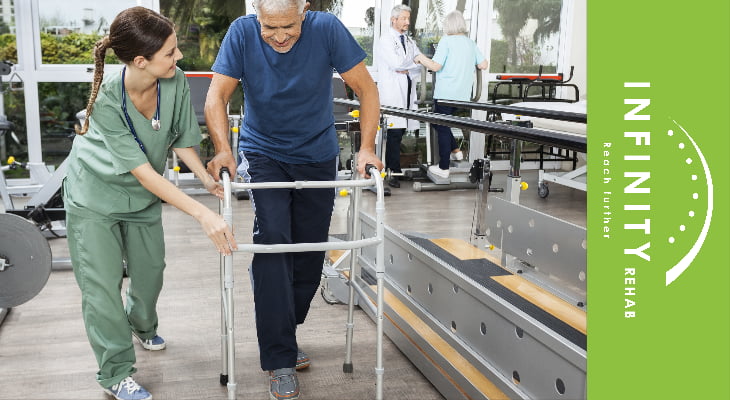Occupational Therapists (OT) and Occupational Therapy Assistants (OTA), are part of a vitally important profession that helps people across the lifespan participate in the things they want and need to do through the therapeutic use of everyday activities. OT and OTAs’ holistic and customized approach to evaluations, interventions, and outcomes provide the specialized support and services to people of all ages and in all circumstances that only occupational therapy can provide.
Here are just a few stories told by colleagues about how several Infinity Rehab OTs exemplified their profession.
Medication Management Roll-out at Linda Vista
I was so impressed and gratified by the enthusiasm by the Linda Vista OT staff for rolling out our med management program. All team members — Suzanne Cruce, Jasper Montgomery, Jodie Dilansa, Olivia Petrosky, Tracy Filler, Paris Geiken, Lindsey DelaVega, and Sarah Muhlberg — were excited and full of ideas from the beginning. I asked them why they so wholeheartedly embraced this program, and here are their responses:
“I felt like it was the missing link; OTs are empowered to look at the big picture, seeing all the medications a person is taking here at the facility and at home, and we are triggering med reviews from our nurse practitioner. Because of this review, we can catch errors quickly, detect duplicate medications, identify medications that the patient has took and no longer needs. With this innovative medication management program, we have a greater opportunity to impact the daily quality of life of our patients.”
“I love looking at cognitive testing and function; playing a role in reducing pain medications improves function in a way that we can measure objectively. It’s amazing. We have patients who are starting to make their own goals, saying “I want to know exactly what I am taking and why so I can do this right at home.””
“I love that we’re giving patients a better chance to go home and stay home, and not wind up in the hospital again. It’s wonderful to start training patients to use adaptations, helping them to figure out routines so they link taking their medications with their daily routines.”
This is excitement, these are examples of OTs looking at the big picture, and making even more of a difference for our patients. This is what OTs do.
–Candace Burton, Director of Rehabilitation
Max Holden joined Infinity Rehab in August of 2017 at Bend Transitional Care. Max was a doctoral student at Pacific University and chose Bend Transitional Care to complete his 16-week doctoral experimental internship. A doctoral internship is much different than the level 2 fieldwork rotations that we are used to supporting. It is a 16-week assignment that enables the student to develop an in-depth experience within an area of interest while implementing a special capstone project that focuses on developing clinical practice skills, research, administration, leadership, program development, advocacy, education and theory development.
Max’s project focused on the geriatric population using the PDSA model to develop and implement a protocol for caregiver training and support in the sub-acute setting. During the 16-week clinical rotation also included a full caseload while he worked to complete his doctoral project. It was imperative for Max’s internship that he not only be exposed to real life experiences and challenges faced by our clinicians, patients and family members, but also to be able to transition from the academic world and make it relevant for our reforming and ever changing healthcare environment.
Max realized that occupational therapists have an essential role in providing support to family members through assessing family/caregiver needs and identifying the unique challenges faced by each family member. This project aimed to expand the view of a client from being a one-person unit to a family unit as multiple family members are frequently involved in the transition of care with their loved ones.
This project identified the caregiver experience through completion of a one page survey, identifying predominant challenges faced by each family caregiver, and by developing strategies to help meet the needs of each family member through the transition of care. Surveys were utilized at the beginning and end of treatment to identify predominant challenges and stress levels experienced by primary caregivers.
Outcomes from the project measured quantifiable changes in stress level and perceived levels of competence, and measured confidence levels when family members provided care to their loved ones. Outcomes from the project measured how effective occupational therapy services were for supporting family members as they transitioned into new roles as caregivers for their loved ones. The goal of the project was to enhance the OT service delivery model and promote enhanced quality of life for patients and their family members. Max will tell you in his own words that this project opened a can of worms. His research identified a need to enhance patient/family education, the complexity of continuity of care, and the effects of bundled payment initiatives on caregiver training, and effects of psycho-social dynamics of patients and families.
Max presented his Capstone project at Pacific University to faculty, students and community members in 2016. I was so proud of Max, his accomplishments, his passion and commitment to not only the geriatric population but the profession of Occupational Therapy. A job well done Max! Happy Occupational Therapy Month.
Karen de la Harpe, Director of Rehab
Taylor Steelman, OT, has a heart for home health. He has worked diligently to provide excellent customer service to our patients in their homes and has a gift for developing rapport with patients and families. Although new to the home health setting, Taylor has developed strategies for outcomes documentation with use of Barthel for standardized testing consistent with Infinity Rehab’s values in the skilled nursing setting. Taylor approaches his role as an OT with an open mind, a compassionate heart and selflessness for the betterment of his patients and the team.
Kristin Hoku Okumura, DPT, Home Health Clinical Director
Occupational therapy is probably one of the most least understood medical professions. My occupational therapists tend to be my “thinkers”. They come up with solutions (and great ones, at that) to the most obscure, difficult challenges. Occupational therapists have the opportunity to consider the “whole person” in their daily treatment sessions and have the freedom to really embrace the idea of letting the patient take charge of their therapy! Most occupational therapists I have encountered in my career truly love their job and really embody the idea that OTs enable people of all ages to live life to its fullest by promoting health and preventing or living with injuries or illnesses.
Erin Ratliff, OTR/L, Director of Rehabilitation






